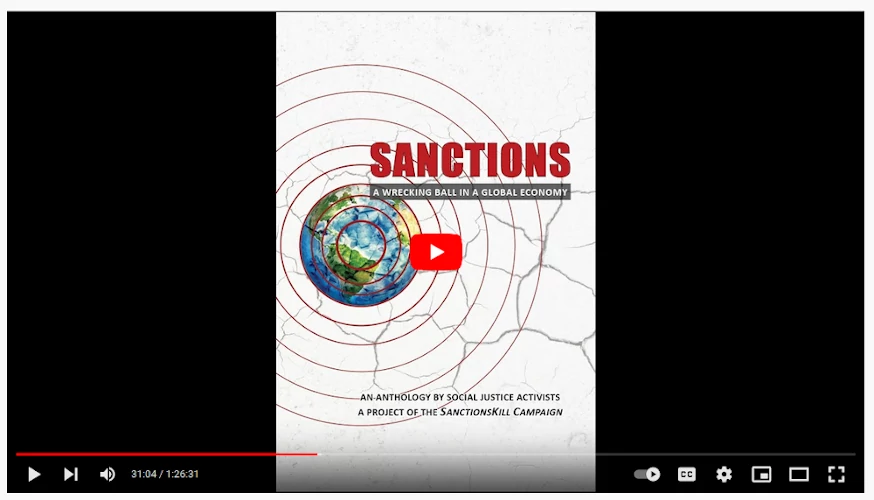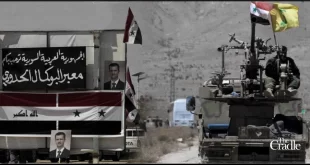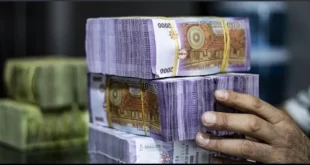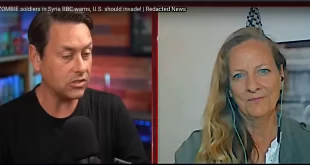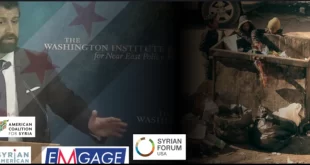On December 10, Human Rights Day, the Sanctions Kill Coalition, in conjunction with the United National Antiwar Coalition, held a webinar to launch their new book, Sanctions Kill, a Wrecking Ball in a Global Economy. The speakers, …., were authors of different chapters of the book. The video below begins with the talk given by Judy Bello of Syria Support Movement on the subject of “Sanctions and the Axis of Resistance”. You can see the whole video at: https://youtu.be/6_ro7VTvOc8
You can buy or support the book at the International Action Center
Transcript:
I’m here today to talk about the effects of U.S. Sanctions, or “Unilateral Coercive Measures” on developing nations in the Middle East. The group of countries I am going to talk about, Iran, Iraq, Syria, Lebanon and critically, Palestine, can be referred to as the “Axis of Resistance”. They are the ‘Axis of Resistance’ to the Israeli occupation of Palestine, and to western imperialism.
In 1948, Israeli Militias occupied Palestine. Many people were killed, more were driven from their homes, and their property was stolen. The remainder have suffered increasingly barbaric oppression over the years including, destruction of property, arbitrary imprisonment, murders and massacres.
Today, the Gaza Strip is completely walled off from Israel and the people are banned from the sea. Building materials are not allowed and the Israelis say that they are keeping the Palestinians on a “diet” by only allowing a subsistence level of foodstuff to be brought in.
Israel has stolen the water from the Palestinian aquifer as well as the water from the Syrian Golan. While Palestinians go without water for drinking and bathing, Israeli Settlers have ostentatious swimming pools a few miles away. While the homes of Gazan people are razed through military bombardment, those living in the West Bank and Jerusalem routinely have their houses torn down, and their property confiscated by Israeli Authorities.
Since 2006, U.S, sanctions ban companies from doing business with the Palestinian Authority. Public schools and hospitals along with other government services are targeted by these sanctions. Meanwhile individual members of the P.A. are enriched under the table so that they will enforce Israeli and U.S. policies.
Prior to the second world war, Syria, Lebanon and Palestine formed a single unit within the Ottoman Empire, Greater Syria or Al Shams. Within this area there are deep ties of kinship and economic dependencies.
In 1953, the United States supported a coup in Iran which ended an emerging democracy and placed Mohammad Reza Pahlavi, the son of a previous dictator, on the throne, while sweeping aside the Majilis, or Parliament and Prime Minister Mohammad Mossaddegh who had dared to nationalize their oil wells.
After 1978, when the Islamic Republic replaced the western puppet government of the Shah, the first sanctions were placed on Iran. In 1980 the U.S. connived with their Iraqi ally to begin a decade long war of aggression against Iran. During the war, the United States and their European allies provided weapons to Iraq including chemicals to make Sarin and Mustard Gas.
Although Iran won the war in the end, and maintained the integrity of its borders, it was left with millions of dead and wounded soldiers and civilians and damaged civilian infrastructure. Their oil refineries, a primary resource, were destroyed. The U.S. increased their sanctions at this point, making it difficult to recover from the war. When I was there in 2007, most of the oil refineries had yet to be repaired.
When Iraq’s Saddam Hussein floated the idea of invading neighboring Kuwait to recoup some of his losses, he was not discouraged. When he made his move, the U.S., destroyed most of his army in a massive display of force, and went on to destroy a great deal of civilian infrastructure in the country. They then instituted severe sanctions on imports of medical supplies, food-stuffs and equipment to restore the destroyed infrastructure.
The result was famine and disease across Iraq. Water sanitation plants and electrical power plants were not able to get the parts for repairs. Hospitals were unable to provide medicines. This situation led to Secretary of State Madeleine Albright’s infamous response to being informed that over 500,000 children had died in Iraq due to the U.S. sanctions over the course of a decade. Asked if it was “worth it“, she said that indeed she thought it was.
In 1979, Syria, which has a large Palestinian population, was sanctioned by the U.S. as a State Sponsor of Terrorism. Syria was also the only country that supported Iran in the Iran-Iraq war. The initial sanctions on Syria were bearable as it was rich in resources and Hafez Assad provided a great deal of social support to the people while enforcing a policy of secularism providing for equal opportunities in business and government, and personal security, for a highly diverse population.
New sanctions placed on Syria in 2004 due to the Iraq war, began a buildup of unrest among the poor.
In early 2011, color revolution style Arab Spring protests arose across Syria which formed the basis for a U.S. fueled proxy war fought by terrorists from across the middle east and around the globe. The war spilled over into Iraq where Mosul was razed by U.S. bombers targeting ISIS prior to their move to Syria in 2014. And it spilled over into Lebanon where terrorist groups wreaked havoc, particularly in conservative Sunni cities in the north. Eventually Hezbollah came to Syria’s assistance out of self defense.
Today, following a fierce 10 year proxy war, Syria has 1/3 of its territory occupied by the U.S. and it’s allies. Turkish backed terrorists continue to control Syria’s Idlib province, while Israel has annexed the Golan and routinely bombs Syrian territory from there. A proxy force led by U.S. allied Kurds administers an area in the northeast of the country which includes most of Syria’s Oil wells, their wheat producing region and a significant water source. The area is protected by approximately 1000 U.S. soldiers.
With the country devastated by bombing raids and terrorist attacks, the U.S. placed new sanctions on Syria. These sanctions, ironically defined by the U.S. Caesar Civilian Protection act, include what are called “Secondary Sanctions”, which punish any country or business that provides any support to the primary sanctioned country.
Meanwhile, the Caesar sanctions are specifically tailored to prohibit reconstruction in Syria. They have not only destroyed the Syrian economy but in conjunction with the theft of Syrian oil and wheat resources, they have devastated the population. Due to the secondary sanctions, International companies are afraid to provide any resources due to the fear of U.S. retaliation.
Since Syrian banking and much of their import/export business was either directly with Lebanon or processed through Lebanese banks, the secondary sanctions on Syria brought down the already fragile and corrupt economy of Lebanon as well. And with the collapse of the banks in Lebanon, the equally unstable and corrupt government has collapsed as well.
Alena Douhan, the United Nations Rapporteur on Secondary Sanctions recently visited Syria. On her return, she demanded that the sanctions on Syria be lifted. The Syrian Pound has been devalued by 1000% so that their money has no value outside the country. There is a wave of cholera across the country due to the failure of sanitation and water purification facilities. Electricity is reduced to 2 or 4 hours a day for most people. They are cold and hungry. Refugees remain homeless. Manufacturing is shut down. Hospitals cannot get the 24 hour electrical supply necessary to run ventilators and other life support equipment. They do not have anesthetics to do surgeries.
Terms like universal free medical care and education have little meaning in this context. Syria, with its money devalued to near zero, must now buy the heating oil and wheat it used to produce on its own. According to Alena Douhan, even the United Nations has trouble providing aid to Syria.
When I was in Syria at the height of the war, there was food to eat and also for the population of displaced people. There was electricity in Damascus, anyway, full time. Terrorists attacked water and energy supplies, which were soon repaired. Meanwhile, the Syrian government continued to supply power and other resources even to terrorist occupied regions …because these resources are necessary to support the civilian population.
Sanctions, more rightfully called “Unilateral Coercive Measures“, are a form of siege warfare. They are not a “kinder, gentler” form of inducement but rather a brutal war on the civilian population of a country. The U.S. uses these methods mercilessly. The term “hybrid warfare” seems “clever” and “new”, but aggressive imperialist countries have been waging wars of this sort on smaller ones for millennia. It is barbaric and despicable.
 Syria Support Movement solidarity with the Syrian people
Syria Support Movement solidarity with the Syrian people

